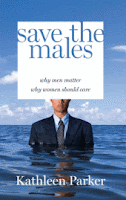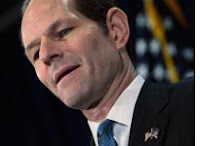 Sex and Sensibility: Thinking about the Boys
Sex and Sensibility: Thinking about the Boys
by Kristen Loveland
Michael Kimmel, in his new book Guyland: The Perilous World Where Boys Become Men describes, as James Hannaham aptly summed up at Salon, a land “where women are treated as objects or bargaining chips, and alcoholism and drug abuse are the norm.” A new anthology edited by Shira Tarrant, Men Speak Out: Views on Gender, Sex, and Power, gives us the voices of men living in the twenty-first century of what some would call post-feminism, what I would call the third wave. One of the contributors, Nate Einschlag, described going from the relative liberalness of New York City, where he grew up hanging out at Laguardia High School and talking about music, to a suburban university where girls did guys’ laundry and guys talked about which “bitches” they’d had sex with the night before. All of which made me wonder about what borders should be drawn around this so-called “Guyland.”
I went from a suburban Connecticut high school to a very urban college atmosphere, which represented a huge relief from the jockish and more overtly misogynistic guys I knew in high school. I’ve always called such guys “dudes” and I’ve met plenty of such “dudes” subsequently in the city. But overall, my college experience was one of emancipation, while “guyland” represents a place where men, and the women who love them, become entrapped by the masculine expectations of their new adult lives.
Of course everything was far from peach perfect in an urban college atmosphere: my feminist self was awakened by parody signs around Take Back the Night, where “dudes” on my floor demanded that women take back the kitchen instead. And a recent article by Anna Clark in Bitch describes some of the issues that I saw beginning at the university level:
the gender gap indicates that women are far less likely to land their stories in the nation’s top magazines and newspapers. Likewise, in the digital world, political candidates made a point of stopping by the YearlyKos conference last summer, headlined by a prominent progressive male blogger, but were absent from the BlogHer conference, which drew top women bloggers together.
This more aptly describes the atmosphere at my college: the suffocation of female ambition, or what might also be called: the female voice. Another contributor to Men Speak Out, Bob Lamm, caught the essence of this issue when he noted the importance of men listening to women, which I thought happened too infrequently in the classroom.
The lack of the female voice and the spidery web of the “old boys network,” which still pervades clubs and classroom space alike, was paradoxically made clear to me at a college talk on the fluidity of gender and sexuality one night. When the female student facilitator paused for a moment to find the right words, her male deputy took the opportunity to depose her, grabbing the spotlight for himself and moderating the conversation from then on. He later complained to me about the female facilitator’s lack of articulation, completely unaware of what he had done. It may be a more subtle misogyny than talking about “bitches,” but it’s harmfully ubiquitous nonetheless.
I still wonder where the delineation falls between the collegiate “guylands” described by Kimmel and Einschlag and the ones I’ve experienced. On the one hand, it seems to be a suburban versus urban phenomenon, and clearly Kimmel and Einschlag are talking about a mostly white, heterosexual population. Quite honestly, some of their stories seem to be taken straight out of every stereotypical and yes, essentially elitist, assumption I’ve ever made when I’ve considered what it would be like to go to a state school in the midwest. As a friend pointed out, these disparate experiences may also stem from whether frats and sororities are prevalent on campus or not. After all, what does it mean to live in an alternative world where men and women deliberately segregate themselves from each other, perpetuating a view of the other gender as occupying a rigid, mostly sexual, place in their lives, and cementing any innate tendency to go with the pack?
Looking at the outliers of “guyland” is just as important as looking at the core, and it’s something I’d like to explore more. I’d love any feedback you, GWP readers, may have on on these constructions of masculinity and your own experiences with different (de)formations of it. You know, I began to write that last sentence with a self-deprecating, understated edge, asking whether “I had made vastly wrong anecdotal assumptions” about masculine constructions. But, really, why shouldn’t I stand by what I’ve said?









